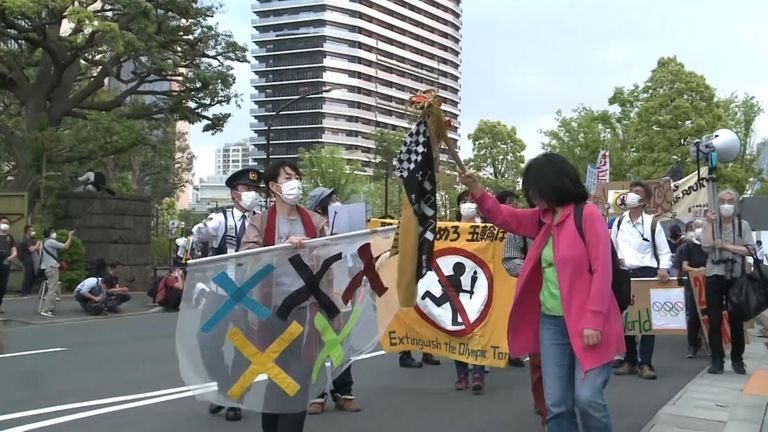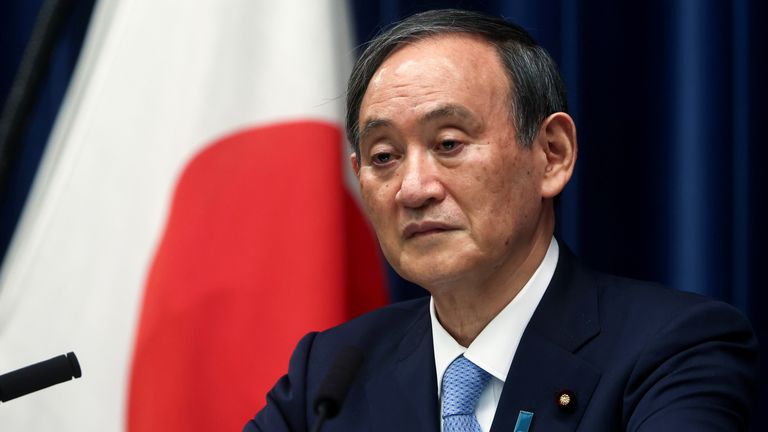Japan has extended a state of emergency in Tokyo and other areas, as the COVID-19 pandemic shows no signs of easing less than two months before the Olympics begin.
The move to continue restrictions, due to end on 31 May, until 20 June comes as the country saw a record number of coronavirus patients in a critical condition in recent days – putting a strain on hospitals, even as the number of new cases has slowed.
Live COVID updates from UK and around world
The 20-day extension covers nine areas in Japan, ranging from Hokkaido in the north to Fukuoka in the south.
A 10th area, the southern island prefecture of Okinawa, is already under emergency status until 20 June.
Olympic organisers must decide at around that time whether to allow any spectators to attend the Games, after overseas fans were banned months ago.
Concerns about COVID-19 variants and a slow vaccination rollout have prompted urgent calls from doctors, business leaders and many members of the pubic to cancel the Games, due to start on 23 July after being postponed for a year due to the pandemic.
A leading medic in Japan has even warned this summer’s event – still known as Tokyo 2020 – could lead to the emergence of an “Olympic” strain of the coronavirus.
Polls show a majority of Japanese want the tournament either cancelled or put off again. Only 2.3% of the population has been fully vaccinated, and the current phased targeting of older adults is not due to finish before the Olympics gets under way.
Japan has reported about 730,000 cases of infection and more than 12,700 deaths in total.
But Prime Minister Yoshihide Suga and his government are determined to host the Olympics.
The PM said: “I am aware that many people are voicing concern about holding the Olympics and Paralympics. I take them seriously, and I will proceed with preparations for a safe and secure Games.”
The International Olympic Committee (IOC) has also said the event would go ahead even if the host city Tokyo was under emergency measures.
While international spectators will not be allowed, some 90,000 people including athletes and their delegations will be attending the event.
IOC president Thomas Bach has said 80% of the 10,500 competitors expected in Japan would be vaccinated and has urged Olympians to get their jabs if they can.
Delegates must also be tested before and after arrival.
Meanwhile, the president of the organising committee has hinted that even domestic supporters may be barred from attending venues.
Seiko Hashimoto said: “We would like to make a decision as soon as possible (on fans), but after the state of emergency is lifted we will assess.”
“There are many people who are saying that for the Olympic Games we have to run without spectators, although other sports are accepting spectators,” she added.
“So we need to keep that in mind. We need to avoid that the local medical services are affected. We need to take those things into consideration before agreeing on the spectator count.”




